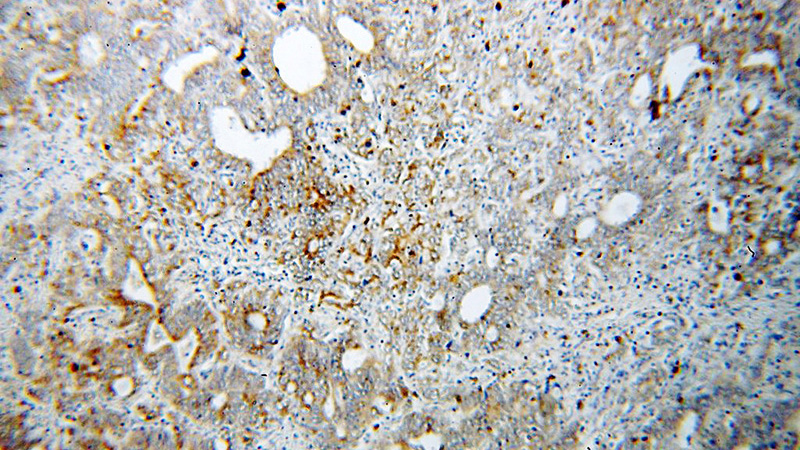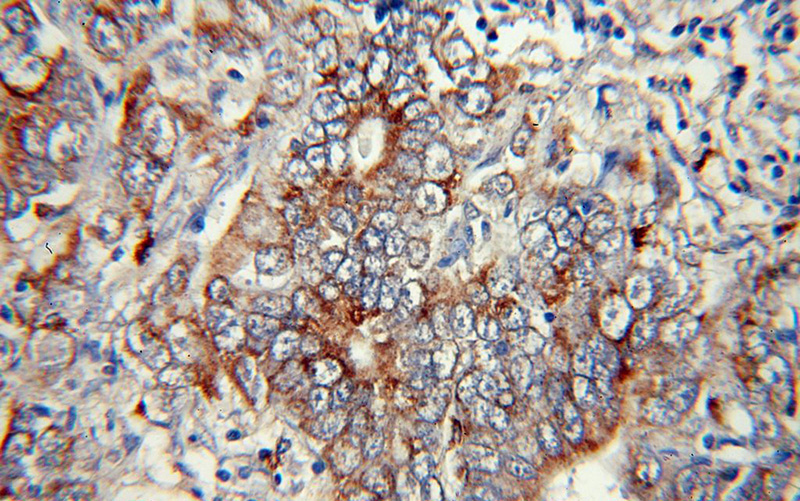-
Product Name
Calpain 9 antibody
- Documents
-
Description
Calpain 9 Rabbit Polyclonal antibody. Positive IHC detected in human stomach cancer tissue, human kidney tissue, human lung tissue, human ovary tissue, human stomach tissue, human testis tissue. Positive IF detected in HepG2 cells. Positive WB detected in human stomach tissue, HL-60 cells, mouse small intestine tissue. Observed molecular weight by Western-blot: 60-66 kDa
-
Tested applications
ELISA, WB, IHC, IF
-
Species reactivity
Human,Mouse,Rat; other species not tested.
-
Alternative names
Calpain 9 antibody; CAPN9 antibody; GC36 antibody; nCL 4 antibody; NCL4 antibody; New calpain 4 antibody; Protein CG36 antibody
-
Isotype
Rabbit IgG
-
Preparation
This antibody was obtained by immunization of Calpain 9 recombinant protein (Accession Number: NM_001319676). Purification method: Antigen affinity purified.
-
Clonality
Polyclonal
-
Formulation
PBS with 0.02% sodium azide and 50% glycerol pH 7.3.
-
Storage instructions
Store at -20℃. DO NOT ALIQUOT
-
Applications
Recommended Dilution:
WB: 1:500-1:5000
IHC: 1:20-1:200
IF: 1:10-1:100
-
Validations

human stomach tissue were subjected to SDS PAGE followed by western blot with Catalog No:108838(CAPN9 antibody) at dilution of 1:1200

Immunohistochemical of paraffin-embedded human stomach cancer using Catalog No:108838(CAPN9 antibody) at dilution of 1:100 (under 10x lens)

Immunohistochemical of paraffin-embedded human stomach cancer using Catalog No:108838(CAPN9 antibody) at dilution of 1:100 (under 40x lens)

Immunofluorescent analysis of HepG2 cells, using CAPN9 antibody Catalog No:108838 at 1:25 dilution and Rhodamine-labeled goat anti-rabbit IgG (red).
-
Background
Calpain 9 is also named as NCL4 and belongs to the peptidase C2 family.It can be down-regulated in gastric cancer tissue and in gastric cell lines of differentiated and poorly differentiated types.It is predominantly expressed in the gastrointestinal tract and restricted to the gastric surface mucus (pit) cells in the stomach and the function of it is implicated in suppressing tumorigenesis(PMID:20686710).
Related Products / Services
Please note: All products are "FOR RESEARCH USE ONLY AND ARE NOT INTENDED FOR DIAGNOSTIC OR THERAPEUTIC USE"
